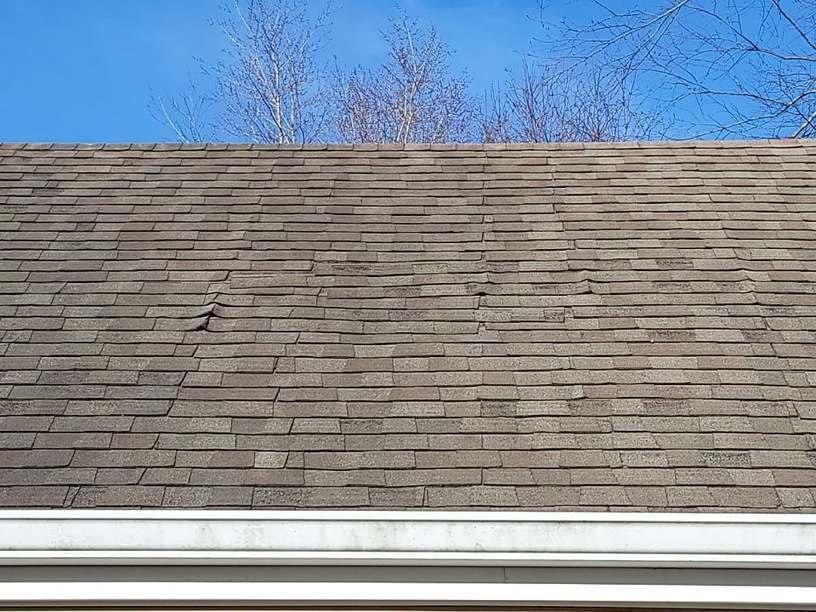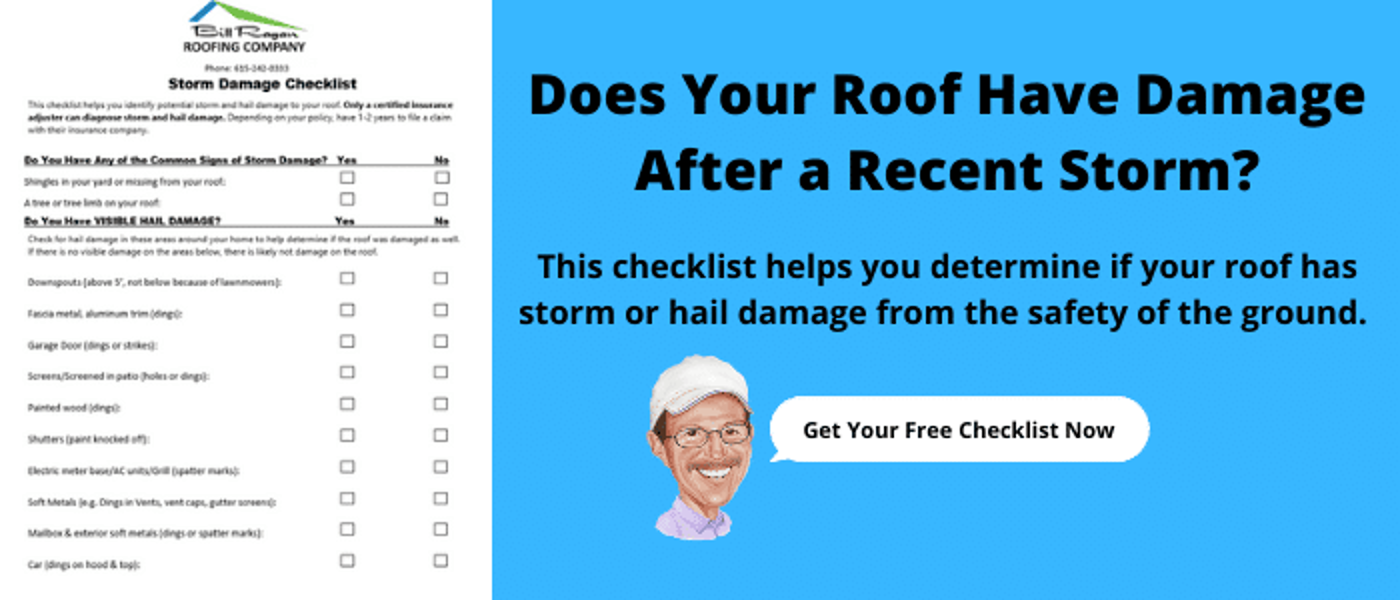ACV vs. RCV: Which Insurance Policy is Better for Your Roof?

So, you have roof damage after a strong storm. Not only is this stressful, but you’ll also have to file an insurance claim to get it taken care of.
But before reaching out to the insurance company, you need to know which policy you have. When looking at your paperwork you’ll either have an ACV policy or an RCV policy.
It can be hard to understand what each policy offers if you’ve never been through the insurance process. So, what’s the difference between the two? Is one better than the other?
For over 30 years, the team at Bill Ragan Roofing has helped homeowners like you understand their insurance policy and what it means to their roof. Because of this, we’ll be breaking down both types of insurance policies.
To start this article, we’ll do an overview of both policies. After that, we’ll give you our opinion on which one is better by giving you a scenario showing how both policies work.
What is an ACV policy?
An ACV policy stands for Actual Cash Value. With this policy, you’ll get a payout for the depreciated value of your roof.
This means the insurance company only pays you for your roof's current value as it stands today. Once your claim is approved, you’ll get a check for the actual cash value and pay the cost difference for your new roof out of pocket.
Keep in mind the amount your roof depreciated and the check you’ll receive is ultimately determined by your insurance company.
What is an RCV policy?
An RCV policy stands for Replacement Cost Value. With this policy, your insurance company pays for the entire roof replacement.
But it works differently than an ACV policy, and you don’t get a check for the full amount upfront. When your claim is approved, the insurance company gives you an estimate for the scope of work required to replace your roof to a brand new version of itself.
First, you’ll get a check for the actual cost value of your roof while the insurance company holds back the recoverable depreciation. After finding a roofing contractor and getting your roof replaced, you’ll provide proof that the scope of work was done in accordance with the claim.
As long as everything checks out, your insurance company sends another check that covers the rest of the cost of your new roof. Just know if you don’t get the work done or don’t follow the scope of work, you won’t get a second check for the depreciated part of the claim.
Is an ACV policy or an RCV policy better for your roof?
After learning what each policy offers, you should have a good idea of which one is better for your roof. But before we get to our opinion, let’s see how the policies differ with the same scenario.
Keep in mind these numbers are entirely made up and are only used to help you understand what each policy looks like in action. For the scenario, we’ll say your roof is 10 years old and you originally paid $12,000 to get it installed.
Actual Cash Value policy scenario
With an ACV policy, the insurance company calculates the amount your $12,000 roof depreciated over the last 10 years and sends you a check for $6,000. You’ll be able to use this $6,000 check towards your roof replacement.
But after getting an estimate from a roofing contractor, the cost for a new roof ends up being $15,000. Obviously, the $6,000 check won’t cover the entire replacement.
This means you’ll have to pay the remaining $9,000 out of your pocket. I know that number is intimidating, and it can be tempting to try to find a lower price or even a roof that costs a total of $6,000.
But just know, a cheap roof equals cheaper quality and labor. This sets your roof up for premature roof failure from the very beginning.
Replacement Cost Value policy scenario
For an RCV policy, you’ll get the first $6,000 actual cash value check, just like an ACV policy. But unlike the ACV policy, the $9,000 will also be covered by the insurance company after the work is completed.
This means your roof replacement should come at no cost to you other than your deductible. But remember, you have to submit proof that the scope of work was done in accordance with the claim before insurance sends the rest of the money.
You also need to keep in mind that with an RCV policy, the insurance company is only paying to restore your old roof to a brand new version of itself. So if you want to upgrade your asphalt shingle or to a different roofing material altogether, you’ll have to pay out of pocket to cover the difference.
So, which insurance policy is better for your roof?
Now let’s get to the reason you’re here. Which insurance policy is better for your roof?
At the end of the day, both policies protect your roof if it’s damaged by a storm. But a Replacement Cost Value policy offers more financial protection when filing a claim.
That’s not to say an Actual Cash Value is bad. It’s just that you’ll spend more of your own money if the actual cash value check won’t cover the scope of work needed.
Why it’s important for your insurance claim to be supplemented
Now you know a Replacement Cost Value policy is better for your roof in the event of storm damage. Remember, the insurance company comes up with an estimate for the scope of work required to restore your old roof to a brand new version of itself.
But sometimes, insurance adjusters leave off key line items your roof needs. That’s why it’s important to do your due diligence to get your insurance claim supplemented.
When you supplement your claim, you're putting in the work to make sure every material and component your roof needs is included in the estimate to be paid for by insurance. They also include code upgrades to ensure your roof is up to code when installed if it wasn’t already.
But for code line items specifically, you need to have a code upgrade policy for insurance to cover them. To ensure your claim is supplemented correctly, it's crucial to show your insurance paperwork to your roofing contractor.
4 things to expect when filing an insurance claim for roof damage
Now you know the difference between the insurance policies and why your insurance claim needs to be supplemented. It’s crucial to look at your homeowners insurance policy before filing a claim, so you know what to expect when contacting your insurance company.
But there’s even more you need to know before actually starting the claim process. Because of this, we wrote another article giving you the 4 things to expect when you decide to file a claim.
Since 1990, the team at Bill Ragan Roofing has provided insurance claim assistance to homeowners in Nashville and surrounding Middle Tennessee areas. We take pride in educating and being transparent with homeowners going through this stressful process.
Check out 4 Things to Expect When Filing an Insurance Claim for Roof Damage to learn what you need to know before starting the claim process.


